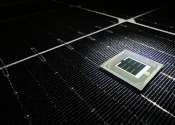Amorphous solar cells with FIDO technology are more efficient, stable and lightweight
A group led by researchers at Nagoya University in Japan has created a material based on fullerene indanones (FIDO), which promises to improve the durability of next-generation solar cells. Durability has been one of the ...
Feb 22, 2024
0
46









